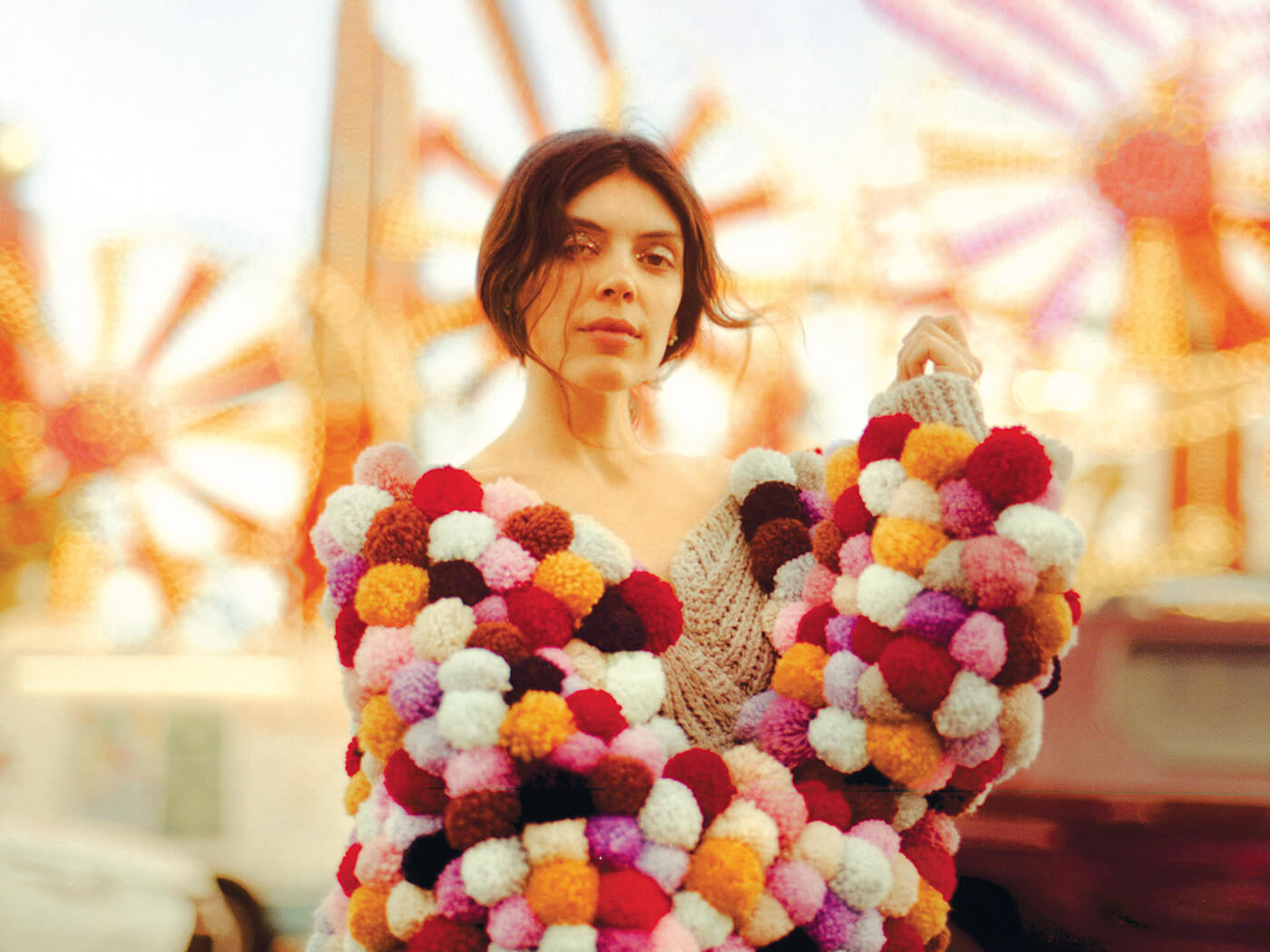“I was made for the green/Made to be alone”, sang Julie Byrne on 2017’s “Follow My Voice”. A startling declaration from her second album Not Even Happiness, it nails the motifs that continue to shape her songs. Aloneness and its non-identical twin, loneliness, are feelings Byrne, an only child, has turned this way and that in examination of her largely itinerant life. “The green” is the natural world, which she describes in rapturous yet unfussy poeticism, as you might expect of someone who studied for a degree in environmental science and worked for a time as a ranger in Central Park.
Those themes run through The Greater Wings, too, though their value has shifted: nature is every bit as vividly present but the locales often stand in for feelings, and while solitude still sits deep in the bones of Byrne’s new songs, they’re warmed by connectivity’s richness. Here are profound expressions of timeless love, nostalgic memories of relationships past, reflections on fulfilment, grief, desire, belonging and habitual non-belonging.
Accordingly, Byrne has expanded her sound palette: alongside finger-picked guitar and voice are a harp, strings, piano and analogue synths, which bear the songs aloft, despite their weighty emotions. There are no drums or percussion; any earthing is done by vocals and guitar. Linda Perhacs, Weyes Blood, Grouper and Mark Hollis are kindred spirits, but a visual reference is more apt: there’s something of Terrence Malick in Byrne’s ravishing quietude, with its tilting at the mystical.
She’s moved quite some distance from her debut album, 2014’s Rooms With Walls And Windows. It combined two earlier cassette releases and is largely a set of sparse, spellbinding acoustic folk in which her voice shifts between angelic purity and a bluesy, soulful ache. However, two instrumentals point at what’s to come – the brief, soughing “Piano Music”, with its unexpected jags of distortion, and “Piano Music For Lucy”, a sorrowful organ piece with an astral bent. Not Even Happiness upped the ante by putting synth flesh on lean song structures and adding lustre without severing Byrne’s folk roots, though it’s Dylan’s freewheeling ’60s spirit that occasionally blows through, alongside Judee Sill’s. She’s never been in thrall to past songforms, but The Greater Wings repositions Byrne in the genre-less present, in the way that My Woman and Are We There did for Angel Olsen and Sharon Van Etten respectively.
The album was written between 2018 and 2022, during the singer’s time in New York, LA, Chicago and Albuquerque, with residencies in Portugal, Thailand and Morocco also playing a part. The recording was similarly nomadic, with the earliest sessions held in returning producer Eric Littmann’s Chicago home studio, the last in upstate New York. The sudden death of Littmann, who also plays synth and piano, in June 2021 meant the album remained untouched until January the following year, when Byrne and two of her players reconvened in the Catskills with Alex Somers as producer.
Some lyrics were changed following the tragedy, but only one song post-dates it – “Death Is The Diamond”, the lustrous closer. Its bookend is the title track, a sensual ripple of acoustic fingerpicking around which synths gently swell and recede, while Byrne’s voice blossoms in charcoal-soft tones: “Distant galaxies move/I’m not here for nothing”, she declares, later noting in metaphysical wonder, “I feel it, the tilt of the planet, panorama of the valley”.
There’s intimacy alongside this lyrical expansiveness: the divine, slow-mo “Moonless”, with its almost mystical, Weyes Blood-ish richness, revisits a night in an old hotel and suggests that love is never lost, rather temporarily displaced until “pools of a moment widen through the air”, enabling reconnection to the source. “Summer Glass” is in glorious contrast, vaporous synths and a trilling motif the foil for Byrne’s cooing. It swells tantalisingly on the brink, but instead segues into the brief, Budd-like “Summer’s End”.
“Lightning Comes Up From The Ground” delivers a slow-mo, surprising likeness of The Lotus Eaters’ “The First Picture Of You”, while the gentle, sustained gush of “Conversation Is A Flowstate” suggests a meeting of Blue-era Joni and William Basinski. “Hope’s Return” soars skyward, sensual and celebratory, a symphony of plush synths roaring gently behind, before “Death Is The Diamond”. A soft-burnished tribute to Littmann with just piano and voice, it’s necessarily sorrowful but flares like a new beginning, rather than a burnout. “Does my voice echo forward?” Byrne wonders, as she makes something like peace with her cataclysmic loss in a neutral universe. Emphatically, yes.

